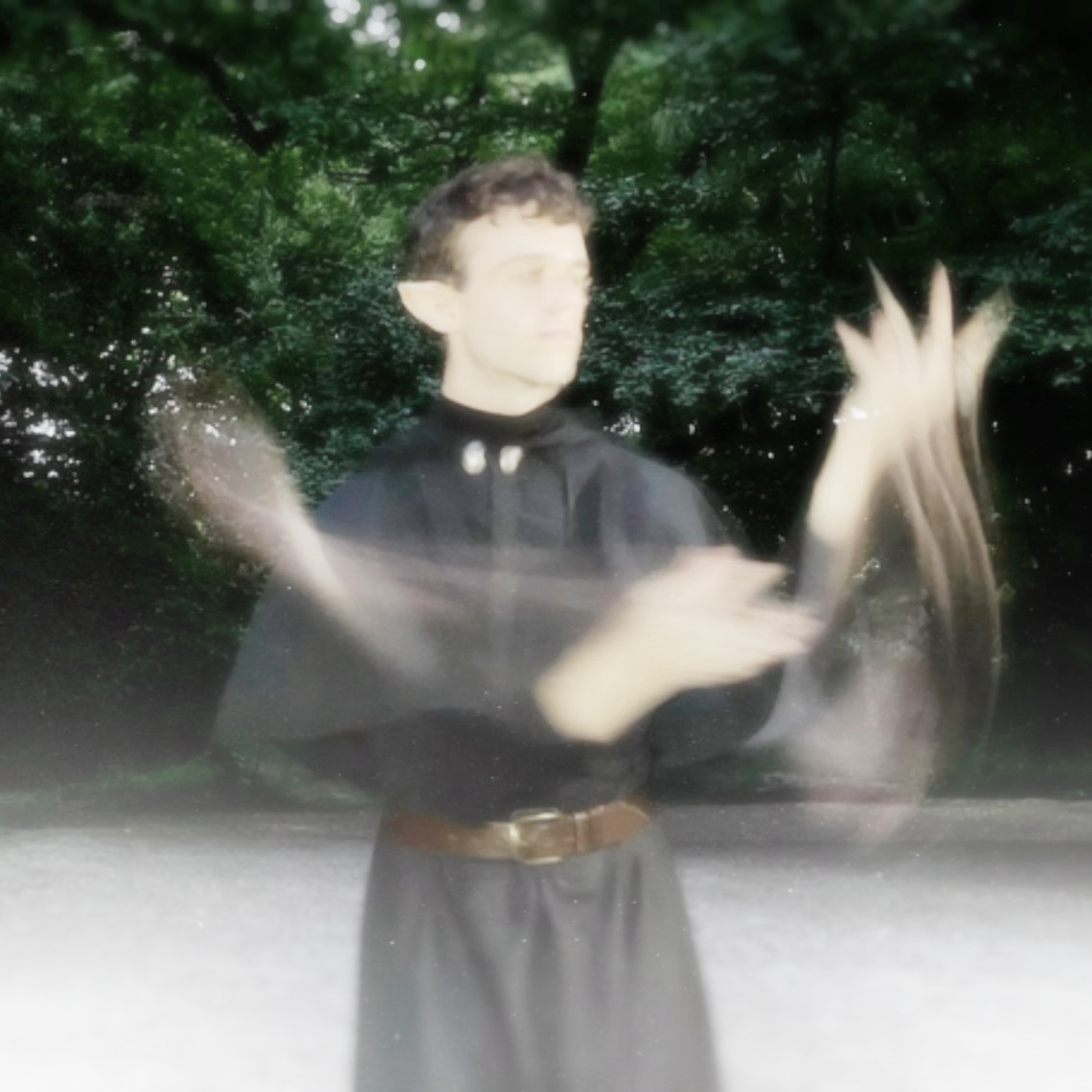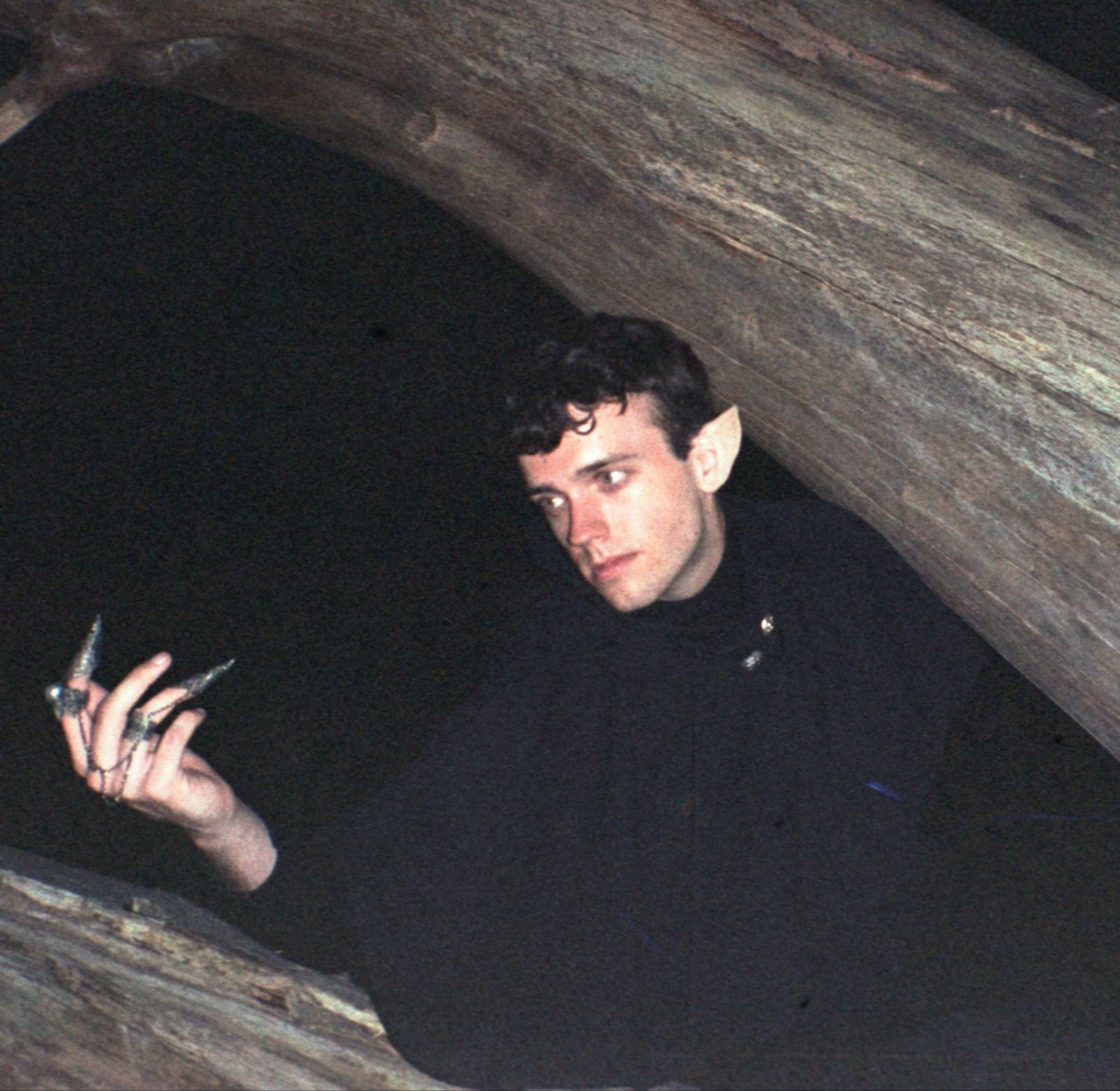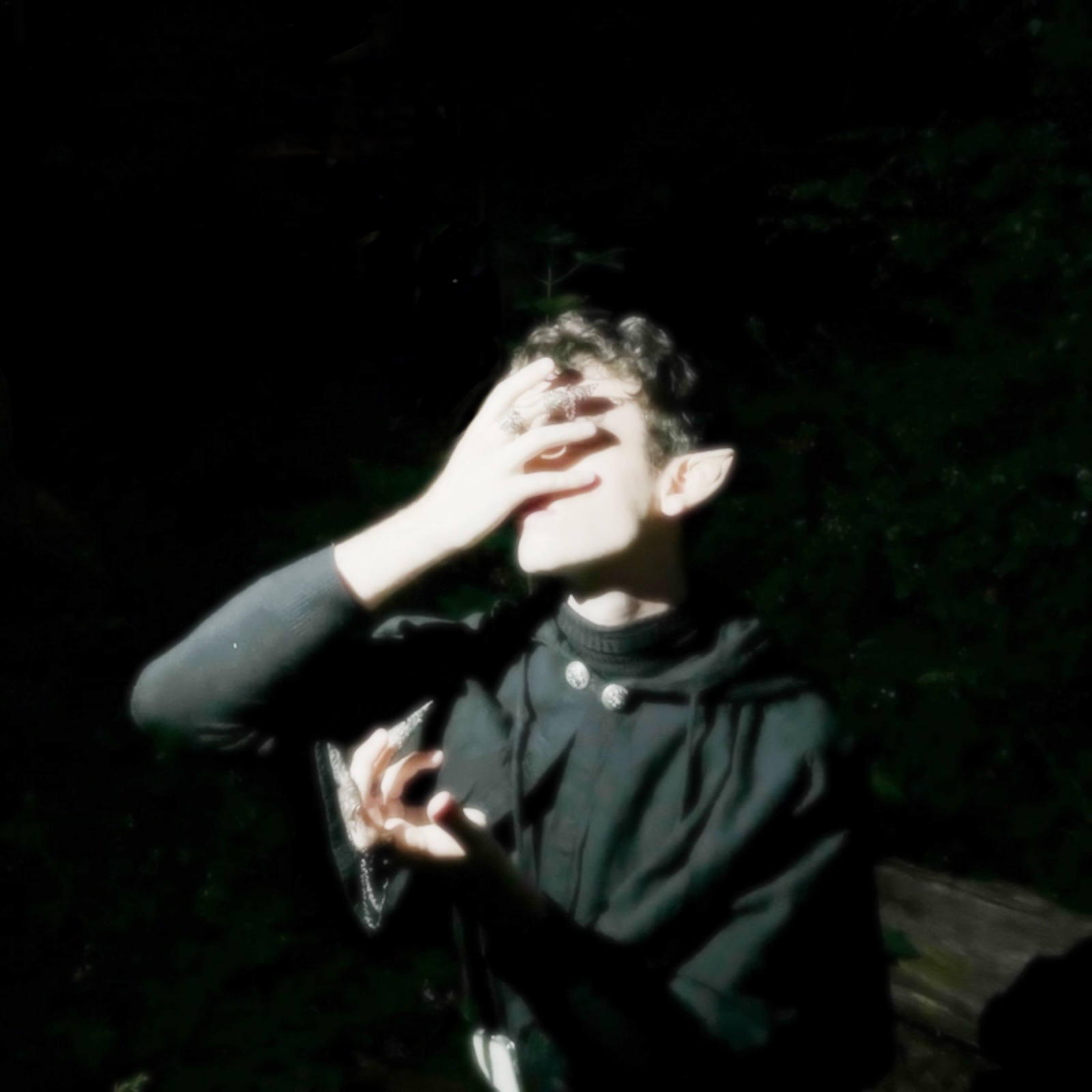 A musically inclined 12-year-old begins making music and DJing in his bedroom. He has dreams of becoming a massive EDM DJ, like Skrillex or Zedd. He progresses to making pop mixtapes throughout high school, which picks up online — significantly. Fast forward to 2022, and he now has four albums, two Extended Plays (EPs), a mixtape, a compilation album, and almost a quarter million monthly Spotify listeners under his belt.
A musically inclined 12-year-old begins making music and DJing in his bedroom. He has dreams of becoming a massive EDM DJ, like Skrillex or Zedd. He progresses to making pop mixtapes throughout high school, which picks up online — significantly. Fast forward to 2022, and he now has four albums, two Extended Plays (EPs), a mixtape, a compilation album, and almost a quarter million monthly Spotify listeners under his belt.
Joshua Ieuan Williams, better known as Ieuan, is a 23-year-old rising singer-songwriter hailing from the United States. Truly a global citizen, he grew up in an English and Welsh family in San Francisco, California, and has additionally lived in Los Angeles and presently London, England as well. Ieuan’s mother was a jazz singer in 1960s East London. “When I was a kid, I kind of wanted to be a rockstar. And it just avalanched since then really.”
Pursuing music was no easy endeavour, however. “I think with any creative thing you have to balance it well. Thankfully I make enough from my music to survive. But I’ve had to have jobs at the same time here and there.” From stints at the Harry Potter studios and vintage markets in Brick Lane to Twitch streaming, Ieuan has had his fair share of responsibilities alongside music. He does love a challenge though.
Ieuan produces everything himself nowadays. After having initially self-produced in his bedroom in his teenage years, he became more involved and collaborative in the industry upon moving to L.A. His latest album, A Study in Ante Meridiem (2022), marks his first entirely self-produced major project. The album revolves around a story of the narrator going through, psychologically and emotionally, hell and then heaven. Ieuan made it in the summer of 2020 and took a grand total of one month to finish it. The “light” that he was following was apparent daily; it “demanded to be acknowledged” and all he had to do was “listen and translate so that [album] was really easy”. Unfortunately, his label delayed its release by a year and a half and he has since retreated back to previous habits, rejoicing in the fact that he can “zone out for 10 hours and make something”.
The writing recently has been that I go out on a walk every morning for two hours to the forest, and I’m just words and sentences and thoughts. […] I let it come to me — certain things or ideas or sites or even things people say — and then bring that to paper.
Intriguingly enough, Ieuan draws his inspiration from deeply abstract, emotive sources. “If I see something that is so immersive, you can tell the person has created it to try and give you a certain feeling — I think that’s what drives, that is what incentivises me to do the same thing for people listening to my music.” It can come from anything: movie franchises, colour palettes, anything. “Anything that is a bit escapist, takes you somewhere else.” His current musical inspirations include ambient artists such as Deadmau5, Eartheater and Drain Gang.
Ieuan’s creative process is very gradual, as albums come to him. “It's like I’m in the woods and I see a flashing light and I follow it. It’s very vague, sort of echoing, and it’s very hard to tell which direction it’s taking me in. But the moment I allow myself to follow that light and keep digging through this idea, and following, the more it feels itself out for me. So I get a concept and then really chase it to its end.”
Listeners truly get a sense of location and environment in Ieuan’s music. In social situations, he switches on “chameleon mode”, where he essentially becomes someone he observes, blending into his surroundings. “It was a universe for me to role-play in as someone else. That kind of thing. My environment is so important.” Ieuan goes chameleon mode in his music too.“There was my first album where it was very California house party stuff. I was in that environment so much. And it wasn’t just about the parties and drinking, it was pure teenage tomfoolery — that was the soul of that music.”

Ieuan has a unique meta-narrative, or grand structure, as he creates music in trilogies. His first three albums, Pink Suburbia (2016), Saint California (2017), and Over the Garden Wall (2018) were promoted as a tricolour trilogy featuring the colours pink, blue, and purple. Even his social media accounts thematically mirrored the chosen colour of each respective era. Although structured as a trilogy within Ieuan’s meta-narrative, each project is its own free-standing, independently promoted project and never truly the same elements twice aesthetically nor sonically. With the more story-driven A Study in Ante Meridiem, the first album of his second trilogy as well as the latest, the monochromatic colours black and white are featured on certain tracks, “‘cause the story’s very cyclical, like the death of ego to purpose. I wanted that to be visually represented by doing black and white and then something a bit more vibrant.” Ieuan plans on doing three trilogies in total after which he will take a hiatus.
A Study in Ante Meridiem is structured in two distinct parts, distinguished by two interludes, ‘PART 1: VOID’ and ‘PART 2: MORNING’. When the coronavirus pandemic began in 2020, Ieuan’s life was extremely contrasting, although he did not realise it until national lockdowns ensued. He felt miserable and was punishing himself and was being incredibly unhealthy. As lockdowns began, he left London where “there was so much noise and so much anger and so much tension all the time” to return to California where “everything was silent”. He started going on hikes everyday, was healing, and felt happier. Ieuan uses the metaphor of night to day saying “when the sun came up, I didn’t even know that it had been night”. The structure conveys that “it's night: oh, I’m horrible, I’m depressed, I’m a terrible person. And then “oh okay, everything’s fine actually”.
The song ‘LEAVING ME TO DIE’ touches on social anxiety and was influenced by Ieuan’s Schizotypal Personality Disorder, and some of its symptoms include being suspicious and paranoid as well as being uncomfortable in social situations due to a distrust of others. He says it is “about cycles, the album, and how it’s like a snake eating its own tail. You distance yourself, and then you think everyone hates you and then you don’t want to get back in because you’re like ‘I’m a burden, they hate me’. It was a testament to me punishing myself and the things I would do to myself and to those around me.”
Confronting such issues in Part One of the album was, in fact, incredibly easy “because it was during such a time of acceptance and patience with myself, [and] I had gone to the peak of that mountain and could look down on that valley, and almost thank it or be appreciative of it”.
Coming from Ieuan’s last release, the EP Sweet Boy (2020) to this year’s album was a smooth progression, in retrospect. Sweet Boy touches on substance abuse and self-pity — a misery similar to that of Part One of A Study in Ante Meridiem, although by Part Two the healing process has started. “It’s one of those poetic justices, I didn’t think they were connected and now that I’m looking back, they really are”.
The first few songs gradually speed up to subconsciously build up to ‘I HAVE NO MOUTH AND I MUST SCREAM’, the most sonically intense and chaotic track in the album, combining various vocal and emotional elements. “I knew that the climax of my misery in this album had to be fucking wacky as hell. […] I wanted a panic attack of a song.” Rather unconventionally, the verses and bridge channel more chaos than the calm choruses.
I can release this because I want to again. And I’m going to. Like I used to back in the day.
Eventually, the interlude ‘Part Two: Morning’ brings us out of the void of misery. The song ‘IN/OUT’ is a stark contrast to previous tracks, authentically reflecting the sudden transition Ieuan went through. A heartbeat underpins the entire song as it is respiratory. “I wanted the song to feel like after a panic attack where you’re stabilising, but also being grateful, it’s like you've just been saved and you just want to hug everything”.
Ieuan’s upcoming single ‘Tokyo Convenience’ teases his next album. It is not a lead single, and he is unsure if it will even be on the new album (although he hinted it probably will). “I can release this because I want to again. And I’m going to. Like I used to back in the day”.
Ieuan’s next album — the second album in the current, second trilogy — will feature 12 tracks in total including 9 songs. “If A.M. was me exploring my confidence and my ego very internally, this is now externally. It’s me assessing my environment and my actual relationships with my friends, my husband, and past people.” It will similarly be narrative-driven but more lucid and less strictly structured. “I want to try and let it breathe more and make it longer and have it be a nice continuation but obviously the aesthetic is going to be completely different which I’m really excited for as well”.
 In a somewhat contrarian mode against other rising musicians yearning to get signed to a record label, Ieuan is grateful for not being signed anymore as he works best and is the most confident when he’s not limited. “It’s funny ‘cause when you say ‘oh, I’ve been dropped’ normally it sounds like a bad thing, but actually it was the best thing because it was like this did not work out”.
In a somewhat contrarian mode against other rising musicians yearning to get signed to a record label, Ieuan is grateful for not being signed anymore as he works best and is the most confident when he’s not limited. “It’s funny ‘cause when you say ‘oh, I’ve been dropped’ normally it sounds like a bad thing, but actually it was the best thing because it was like this did not work out”.
And the process certainly shows too. Ieuan believes his greatest strength as an artist is trusting himself that when he knows something is right, to ignore everything else and just do it. “I think just allowing myself to once again follow that light fully until it’s completely realised, and not letting anything else get in the way, like ‘oh, will people like this?’” He recalls bewildering his husband when mentioning that he would dress up as an elf and a wizard for ‘Tokyo Convenience’. Yet “now it makes a lot of sense”.
On the other hand, he supposes that the greatest challenge he faced when pursuing music is public perception since he is and has been doing everything independently and simply does not know how he appears.
Having faith in myself and the universe to be like ‘that’s okay’ is exciting because, well, I’m still going to fight for it.
With regard to the music industry, if Ieuan could, he would make Spotify and other platforms pay artists a little more as they make so much money.
Ieuan closed off by telling me that he loved the fact that he is not famous. “When I was 18 I remember living in LA being like ‘Why have I not made it yet? I’m so popular online, I get streams!’ But I’m glad it didn’t happen then and it hasn't happened yet because otherwise, I feel like I would get bored of it and would stop trying. But because I’ve been wanting this for so long — not to be famous, but just mainstream success — because I haven’t gotten it yet, it’s almost winking at me. It’s like ‘do better', and I’m like ‘yeah’. So I love that every year I do better. I’m at 200,000 monthly listeners on Spotify and I was at 100,000 last year. […] Having faith in myself and the universe to be like ‘that’s okay’ is exciting because, well, I’m still going to fight for it”.
This interview has been lightly edited for brevity and clarity.





0 Comments